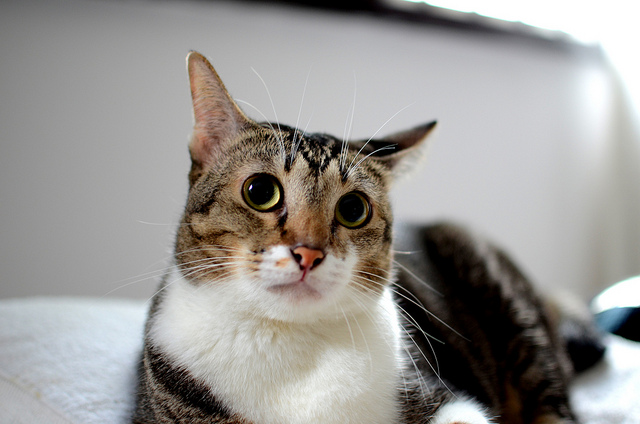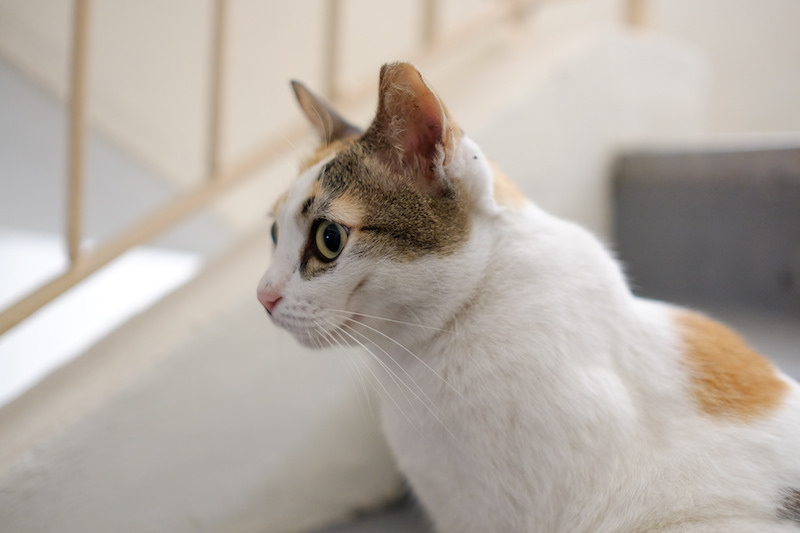Last Saturday, a Facebook user by the name of Alfredo Seow uploaded a snap of a letter sent by the Housing & Development Board (HDB) — it was a stern warning against keeping cats as pets in flats.
Though it’s hardly the first time anyone has heard of HDB’s ban against felines in flats, it sparked yet another round of public debate and outcry regarding the archaic ruling that’s been in place since 1989.
“This is stupid, they should allow cats like they allow dogs,” asserts one commenter. “The reasons given as to why cats aren’t allowed in HDB flats are rather ludicrous and does not quite add up,” challenges another.
Again, we have to bring up the fact that the issue of HDB vs Cat Owners is one that’s been long fought. You can be angry all you want over the highly contentious rule — but here’s why you shouldn’t be too concerned if you’re a responsible pet owner with cat(s) loafing around in your flat. Q&A time!
What kind of pets are allowed in HDB flats?

According to HDB, dogs, fish, hamsters, rabbits, birds, gerbils, guinea pigs and other small animals are allowed to be kept in flats. For dogs, they have to be one of the 60 HDB-approved dog breeds (all small-sized doggos) — but only a maximum of one dog can be kept in flats.
Cats, however, are outrightly prohibited from all HDB units. Like we said, it’s a ban that was enacted way back in 1989.
Gasp! But why?
Generally because they’re independent animals who like to roam around by themselves (cats just DGAF).
“They are generally difficult to contain within the flat. When allowed to roam indiscriminately, they tend to shed fur and defecate or urinate in public areas, and also make caterwauling sounds, which can inconvenience your neighbours.”
Pfft, the same reasoning can be applied to dogs! What’s the real reason behind the anti-kitty attitude?
HDB won’t stray beyond their official template mentioned above. But we theorise that one of the main reasons is the fact that cats are huge destroyers of wildlife.
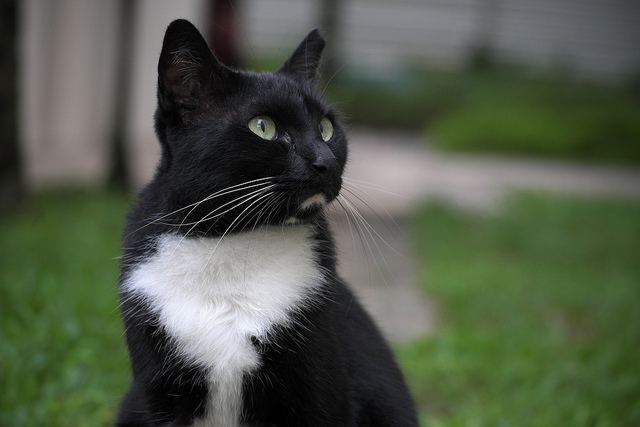
Sorry, cat lovers, but it’s true. Free-ranging cats can and have destroyed billions of small mammals, reptiles and birds every year, damaging local (and sometimes vulnerable) ecosystems. Domestic cats have wiped out dozens of island species around the world, and their unchecked growth means that they’re a primary threat to many other critically endangered species. Cute and cuddly they may be (not to mention their easy meme-fication), but objectively, cats are an invasive species.
Of course, the studies linked above relate to feral cats in other countries, but you can see how it’s applicable to Singapore as well. Having a smaller land mass means a more vulnerable ecosystem — and the multitudes of stray cats around neighbourhoods can mess up the balance, aside from obvious problems like hygiene.
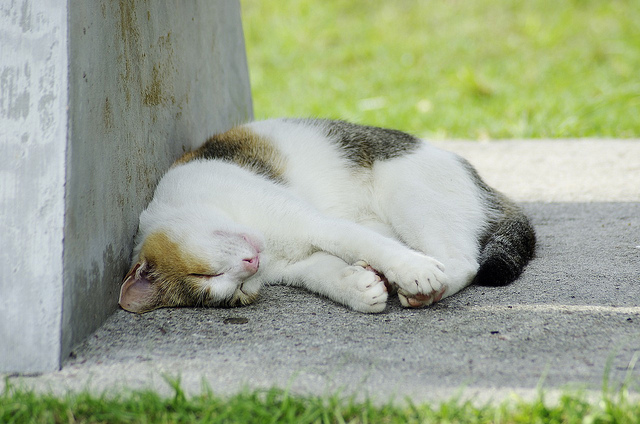
Hmph, okay. But why are so many people still keeping cats in their HDB flats?
Contrary to popular belief, HDB officers aren’t going out hunting for little kitties and throwing them in the furnace. They generally turn a blind eye to cat owners and community cats… unless they receive a serious complaint.
Take, for example, the recent case that went viral. According to Cat Welfare Society, HDB’s letter was only sent out after a year-long issue involving the cat’s urination — an issue that could have been avoided if its owner didn’t allow it to roam outside.
“Evidence points to this owner letting their cat roam. The urination issue has been ongoing for about a year despite mediation.”
TL;DR: HDB won’t bother you if you keep your cat(s) inside the house at all times. If little Maomao poses no problems to your neighbours, it poses no problem to HDB.
But that’s unfair! Cats are outdoor creatures.
Not necessarily. There are many pros and cons to letting your pet cats roam around in corridors or even void decks, but considering that most of us live in apartments, the inclination should be towards keeping them indoors. Honestly, it’s a lot safer — they won’t get accidentally hit by traffic, they won’t be subjected to cruel abuse, and they won’t be attacked by other animals (including other cats).

In fact, indoor cats can reach the ripe old age of 17 or more years, while outdoor cats only live an average of up to five years. So there’s that.
Also, refer to the part above about them being an invasive species.
Okay, okay. Still, it’s pretty unfair for HDB to punish cats instead of the owner.
Oh yes, we totally agree. Plus, what do you think the owners will do if they were forced to let go of their cat? Most probably, they’ll abandon them — and this’ll lead to more strays.
Will it be possible to change HDB’s mind about cats though?
Hmm, there was an inkling of hope back in 2012.
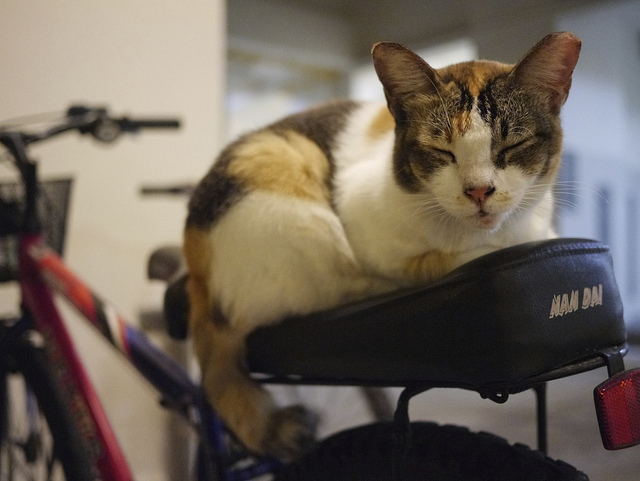
A pilot project called Love Cats was launched in October 2012 in the Chong Pang estate, where 125 residents were allowed to keep cats in their flats — but they had to adhere to responsible practices like getting them sterilised, microchipped and registered. And, of course, keeping them indoors.
The two-year project was led by HDB, with the aid of the Ministry of National Development (MND), Agri-Food & Veterinary Authority, Sembawang Town Council and Cat Welfare Society in a bid to encourage responsible cat ownership.
That’s great! What’s happened since then?
The programme received a two-year extension in 2015, with plans to expand it beyond Chong Pang.

Alas, the optimistic plan seems to have burned out. Despite support from Law Minister K Shanmugam (noted cat lover) and Nee Soon GRC MP Louis Ng (noted animal welfare activist), the MND has decided not to fund the programme. The Cat Welfare Society (and the cats!) have been left to fend for themselves.
Oh man. So what can we do for our feline friends?
We can’t stress this enough to cat owners: be responsible for your cats. Microchip them, make sure they’re neutered, send them for regular veterinary check-ups, keep them indoors (or at least limit their outdoor roaming under supervision). Put a collar on them, provide them with adequate food and fresh water, and ensure clean litter boxes. Give them scratching posts, beds and toys to play with. Keep ’em clean by bathing them, cleaning their eyes and ears of dirt, and trimming their nails.
Trust us; if everyone’s a responsible cat owner, HDB will have no choice but shut up about their silly little law.
